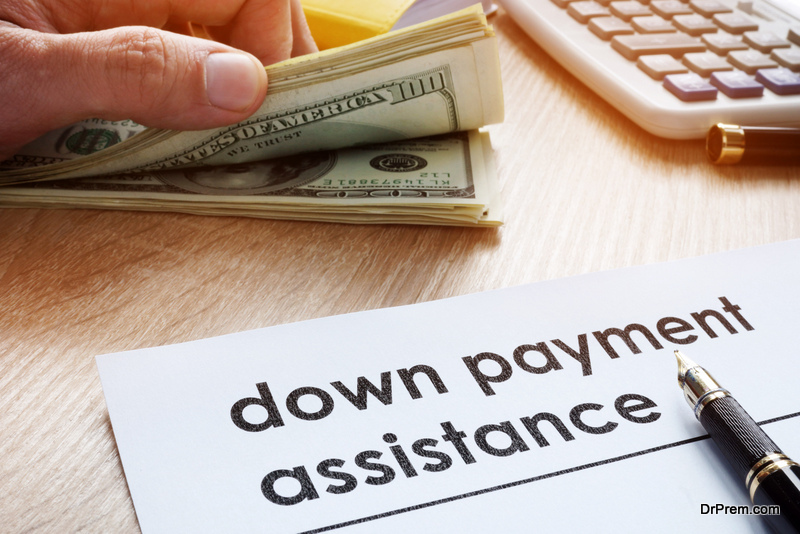Most people assume that bad credit is a death sentence for purchasing a house, but this isn’t necessarily true. It’s still possible to buy a house with bad credit – so long as you know which steps to follow.
Why Good Credit Matters
 Credit is something that few people understand. We know it’s important, but aren’t really sure how it’s determined or why it matters. As a result, we don’t always make decisions that protect and improve our credit scores. And ultimately, this can come back to bite in a big way when it’s time to buy a house.
Credit is something that few people understand. We know it’s important, but aren’t really sure how it’s determined or why it matters. As a result, we don’t always make decisions that protect and improve our credit scores. And ultimately, this can come back to bite in a big way when it’s time to buy a house.
Your credit score is a three-digit number that’s calculated by looking at your history of borrowing and repaying money. It’s essentially a combination of five factors:
- Payment history (whether or not you pay your bills on time)
- Credit utilization ration (how much of your available credit you use)
- Length of credit history (how long you’ve been borrowing money)
- Types of credit used (the different types of loans – credit, car, student, etc.)
- New credit (how recently have you opened new credit)
The higher your credit score, the lower your interest rate on a mortgage (and vice versa). And while you can still get high-interest loans with lower scores, there comes a point where traditional lenders start to see you as a risk. Once a score drops into the 660 range, some lenders will send you away. And the closer you get to 600, the fewer good options you’ll have.
If you have a really bad credit score – one below 600 – you may find yourself in a position where no bank is willing to lend you money. (Not even subprime lenders.)
3 Tips for Buying a House with Bad Credit
If you have bad credit, a traditional lender – like your local bank or credit union – probably isn’t an option. But this doesn’t necessarily mean you’re out of luck. Here are some tips for helping you buy a house even with bad credit:
1. Make a Larger Down Payment
 Lenders want to maximize their ROI. One of the ways they do this is by reducing risk. If you want to convince a lender to take a chance on you, coming up with a larger down payment can help. (This lowers the amount you need to borrow and lessens their risk.)
Lenders want to maximize their ROI. One of the ways they do this is by reducing risk. If you want to convince a lender to take a chance on you, coming up with a larger down payment can help. (This lowers the amount you need to borrow and lessens their risk.)
If you’re able to come up with a down payment of at least 20 percent, your odds of getting approved for a loan skyrocket. Not only does this reduce the lender’s risk, but it shows them you’re willing to get some skin in the game.
2. Find the Right Lenders
If the banks are turning you away, you may simply need to try another avenue for securing a home loan. A mortgage broker is a great next step. They commonly work with people who have been denied by banks and can get you in touch with a variety of private lenders and/or groups are less risk-averse. These private lenders don’t study credit as their defining metric. Instead, they analyze factors like existing debts on a property.
3. Find a Co-Signer
 Another option is to find a co-signer. This person would actually be listed on the mortgage along with you. They essentially promise the lender they’ll step up and make payments if you’re unable to do so. (For this reason, it can be hard to convince someone to sign on with you.)
Another option is to find a co-signer. This person would actually be listed on the mortgage along with you. They essentially promise the lender they’ll step up and make payments if you’re unable to do so. (For this reason, it can be hard to convince someone to sign on with you.)
A co-signer may or may not help in your situation. If you have extremely bad credit, a traditional lender might not care that you have a co-signer. (They often look at the lowest of the two credit scores and base their decision off that number.) But if you’re simply young and don’t have much of a credit history, this option could be practical.
Once again, working with a mortgage broker to identify a private lender who is willing to loan you money without the need of a co-signers is ideal. This method is more of a last-ditch effort when everything else fails.
Making Home Ownership a Reality
Home ownership is something that a majority of Americans strive for. And while it certainly helps to have good credit. Bad credit doesn’t have to disqualify you from this dream. Explore all of your options and wait for the right opportunity to emerge. Your patience will eventually pay off.
Article Submitted By Community Writer




